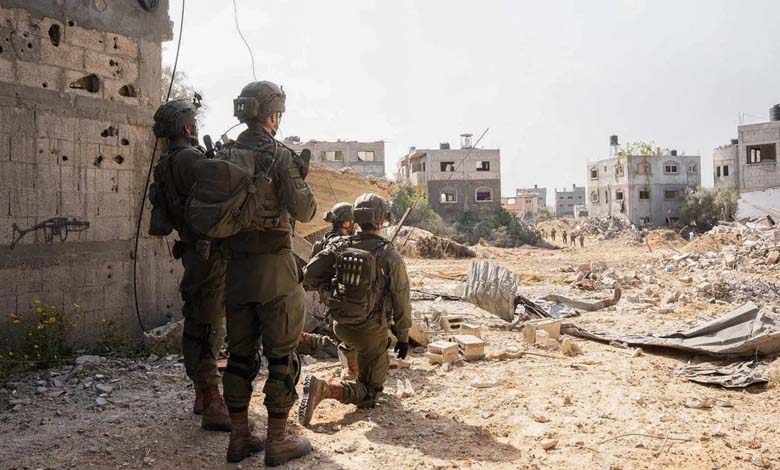The Rafah Brigade Remains a Military Challenge for the Israeli Army in Gaza

An Israeli report reveals the continued ability of the Rafah Brigade, affiliated with al-Qassam Brigades, to carry out attacks on the Israeli army through the use of tunnels—months after Israel officially declared the brigade defeated.
Although months have passed since the Israeli army announced the “defeat of the Rafah Brigade” of the Izz ad-Din al-Qassam Brigades, the military wing of Hamas, a new Israeli report portrays a different reality on the ground. It highlights the ongoing military operations of Hamas in Rafah, a city in southern Gaza, and its continued reliance on a tunnel network, in clear defiance of Israeli military pressure.
-
From Beirut to Gaza… A New Mission for Israel’s 36th Division
-
Latest News from Gaza: Israel Expands Operations in the North Mass Exodus towards the South
In a report published by Yedioth Ahronoth, Israeli journalist Yossi Yehoshua revealed that the Israeli army’s announcement of the destruction of the Rafah Brigade was inaccurate. The Hamas-affiliated battalion remains operational in the area and maintains advanced combat and logistical capabilities, relying primarily on what he termed a “tunnel empire.”
According to the report, the Israeli army declared in September 2024 that it had eliminated the Rafah battalion through large-scale military operations, resulting in the deaths of over 2,000 Hamas fighters and the destruction of 13 kilometers of tunnels beneath the city. However, field testimonies recently gathered by Yehoshua indicate that the battalion is still active and effectively operating, raising questions about the credibility of previous official statements.
-
Fatah Calls on Hamas to Leave the Government Scene: Have Mercy on Gaza and Its Children
-
“Netzarim” and “Salah al-Din” at the Heart of the Gaza Battle Again… Military Advance and Warning
During a field visit by Israeli Chief of Staff General Herzi Halevi to the Morag axis in Rafah, on the eve of Passover 2025, it became evident that the battle is far from over. In a speech to the troops, Halevi said, “I expect you to defeat the Rafah Brigade,” directly acknowledging that the battalion is still resisting and has not been fully neutralized.
Israeli military sources told the newspaper that Hamas still maintains a strong military presence in Rafah and continues to conduct its operations using a network of tunnels, many of which have been restored despite years of targeted attacks. Estimates suggest that about 75% of the tunnel infrastructure remains functional, with only a quarter destroyed—raising serious concerns about the effectiveness of Israel’s strategy in dealing with this ongoing threat.
The report also highlights the contradiction between these findings and public statements made by Israeli Prime Minister Benjamin Netanyahu, who has repeatedly declared that Israel is “one step away from victory” in its campaign against Hamas. Yehoshua argues that such statements have led to unrealistic expectations among the Israeli public, only to be confronted later by the much more complicated reality on the ground.
As the gap between official rhetoric and battlefield facts becomes more apparent, fears are growing within Israeli circles about the consequences of this disconnect, particularly regarding public trust in the military amid a prolonged and unresolved conflict. Observers suggest that these revelations could spark widespread political and military criticism, especially if Hamas continues to effectively use tunnels as a war tool enabling movement, concealment, and resupply.
-
Military surprise near Gaza: Is Israel preparing for another October 7?
-
From Gaza to the West Bank… Israel Draws Up “The Day after” Plans
It is worth noting that Rafah, located on the border between Gaza and Egypt, holds strategic importance for Hamas, serving as a vital logistical hub. Over the years, the movement has worked to strengthen its military presence there, despite frequent air and ground strikes.
According to the report, Hamas’s ability to endure in Rafah reflects a form of unconventional warfare and showcases the group’s adaptability to complex field conditions through strategies based on mobility, concealment, and redeployment.
Yehoshua concludes his report by warning that ignoring this new reality could lead to flawed political and military decisions. He calls for a comprehensive reassessment of current strategies and urges the construction of a narrative based on accurate data—far from temporary slogans and media-driven victories.












